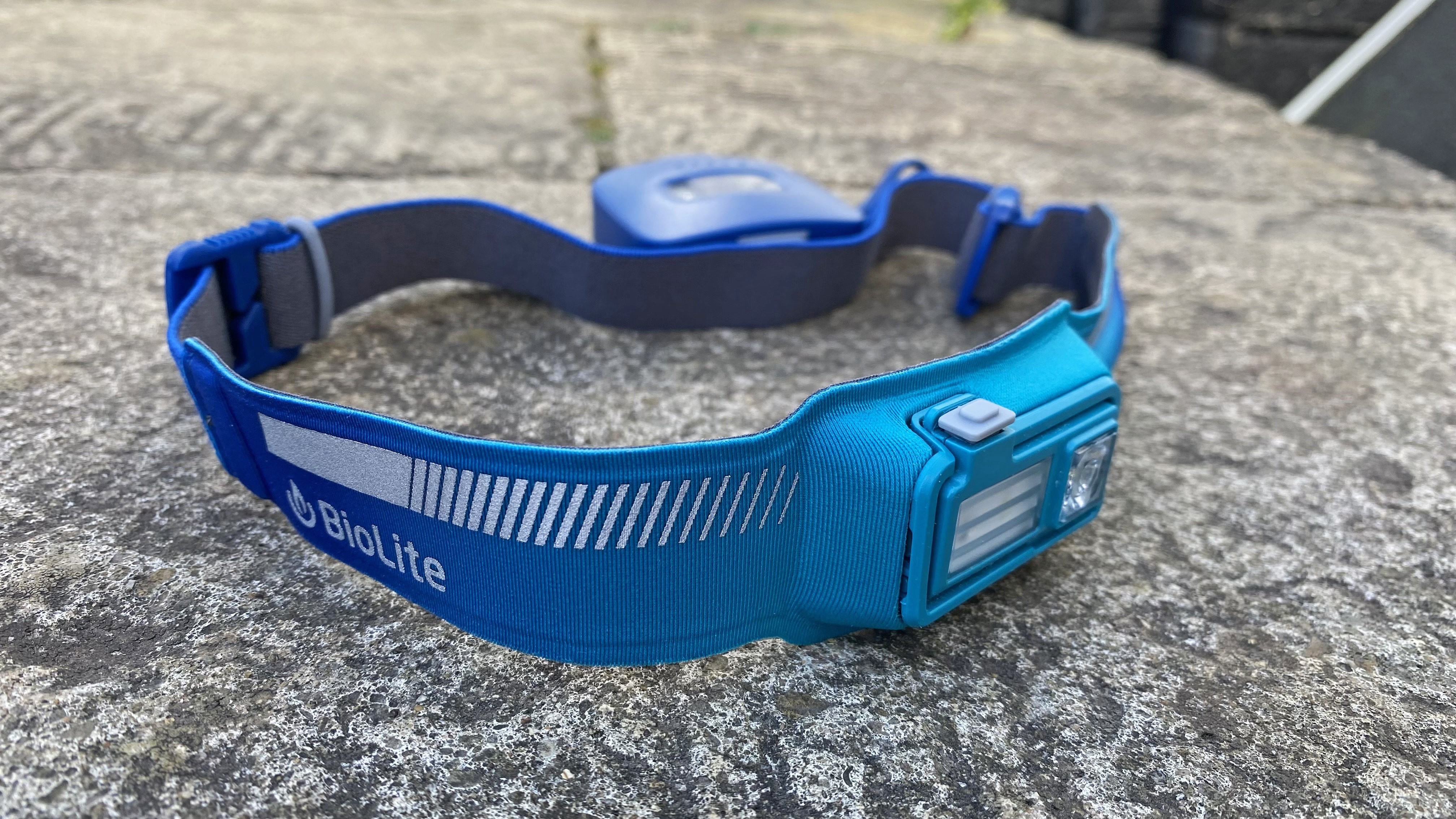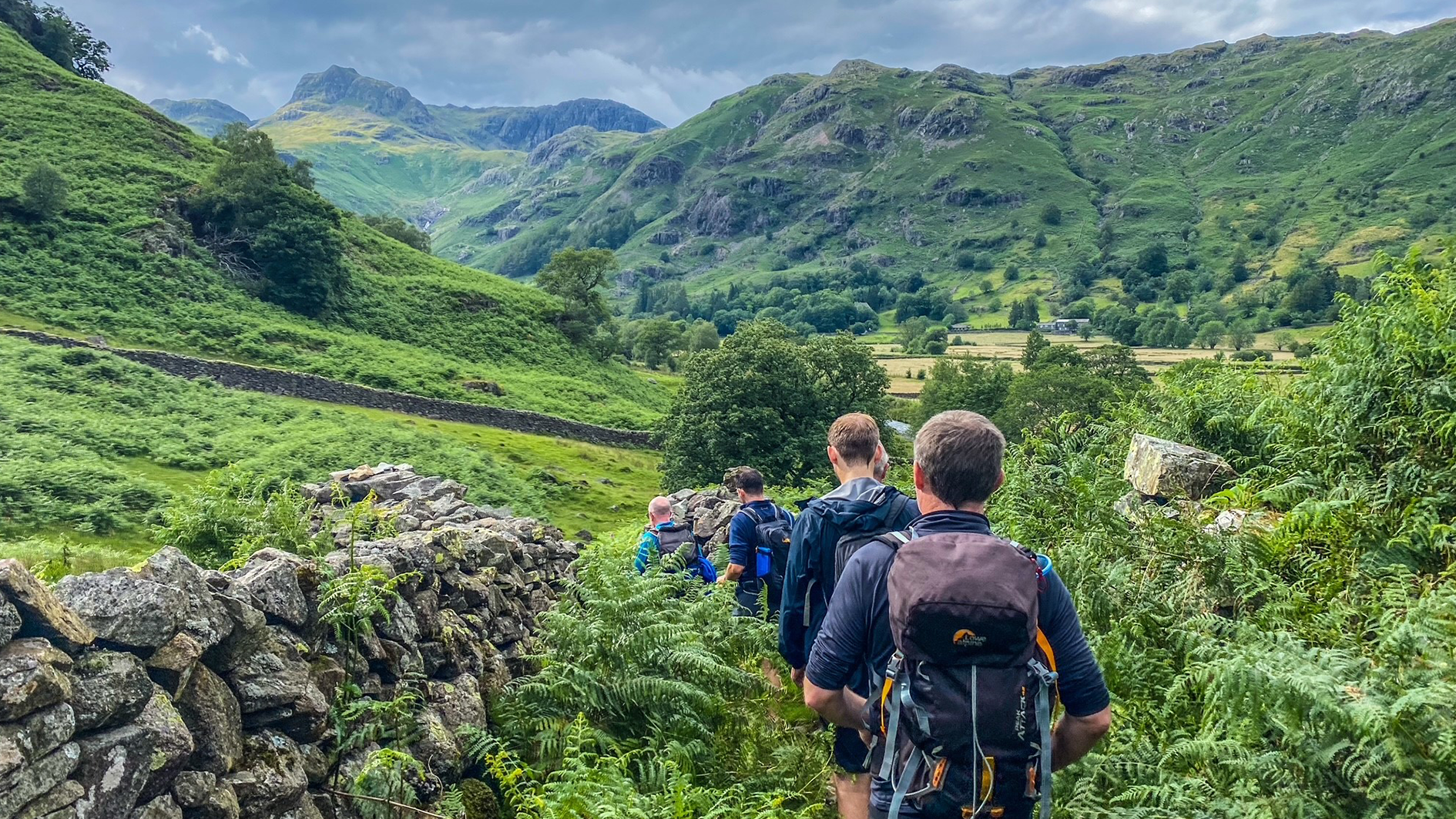Advnture Verdict
An excellent headlamp for late-night and pre-dawn trail running especially (although also perfect for a range of adventures), the bounce-free BioLite Dash 450 is light, bright and brilliantly balanced, so you can see the trail ahead but almost forget you’re wearing a head torch at all. The single-button operating system is easy to use, and the ability to dim the bulb gives you the power to extend your adventure a lot further. And for all this, the price tag remains impressively low.
Pros
- +
Extremely lightweight and well balanced
- +
Super slim profile
- +
New lens provides a high-lux beam
- +
Red light on the rear for safety
- +
Excellent range of modes
- +
Beam can be angled
- +
Brilliant price
- +
Rechargeable
Cons
- -
Not fully waterproof
- -
No option to carry extra batteries
You can trust Advnture
I’ve tested several torches produced by Brooklyn-based brand BioLite in the past, and I have found them to be among the best headlamps on the market, offering brilliant levels of brightness with minimal weight penalty. They also tend to be extremely well balanced, with the battery pack positioned at the back of your head and the low-profile light unit at the front, which makes them very good running headlamps.
In 2023, when it was first released, I trail tested the BioLite HeadLamp 425, which is – I discovered – absolutely excellent for running and fastpacking. Two years later it’s still going strong, and (so long as I’ve remembered to keep it charged) it’s the head torch I always reach for first if I’m heading out for an after-dark or pre-dawn run, or if I’m doing a quick two- or three-day skit along a trail.
The Biolite Dash 450 is the direct descendant of the 425 and I have been looking forward to seeing what it offers, besides (obviously) an extra 25 lumens of light.
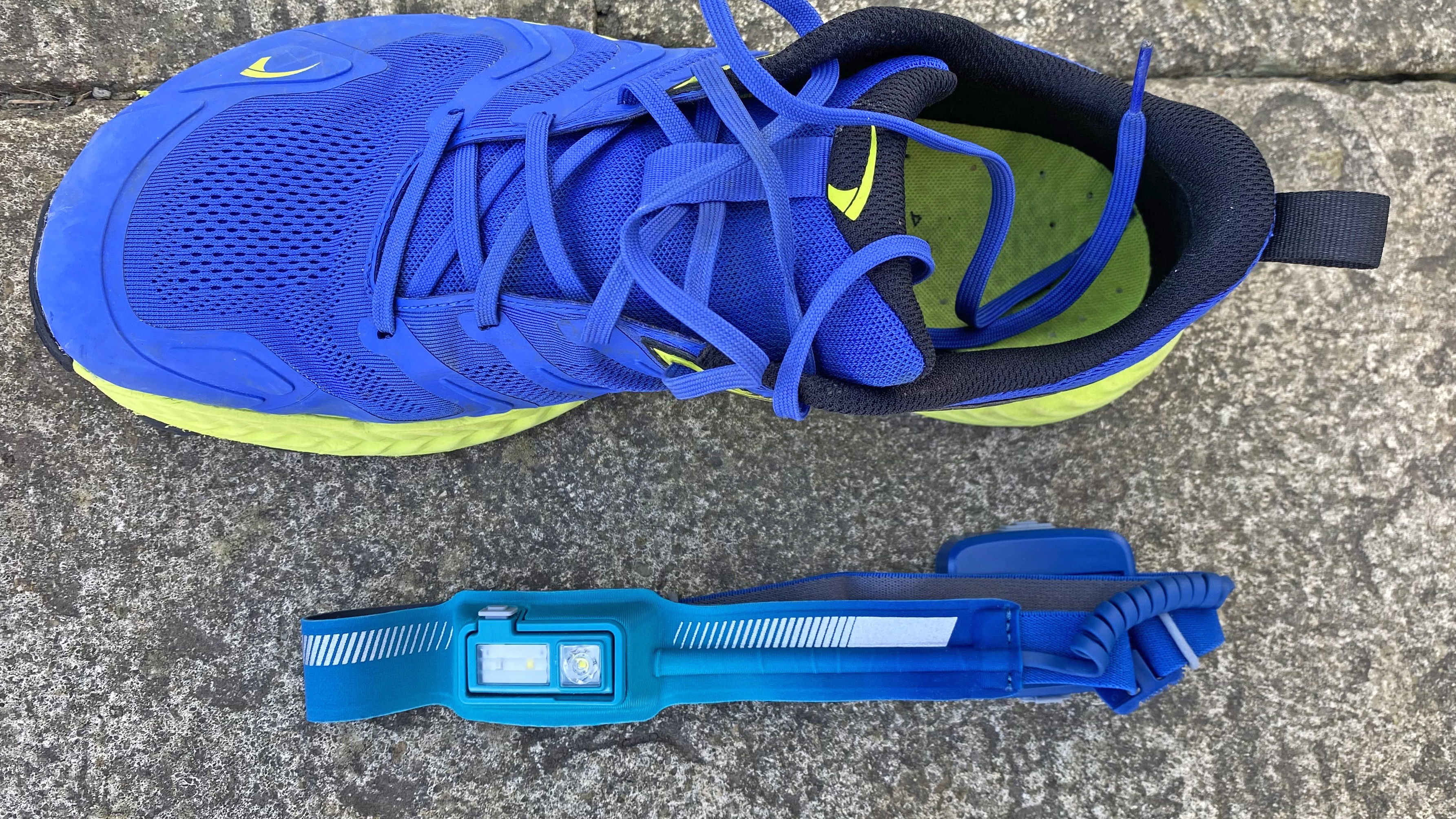
Design and build
Visually, the Dash 450 looks exactly the same as the 425. But that’s not a criticism. I love this design – which features a small and very low-profile light unit positioned on the front of a comfortable headband, with a rechargeable battery pack on the back – and I think it’s a hard one to substantially improve on while keeping this product available at its very affordable price.
Tipping the scales at a svelte 78g (2.75oz) – just like the 425 – the Dash 450 is already light, but this division of light and power pack between the front and rear means the weight is nicely balanced on your head, and the wiring between the two is integrated into the headband, so it doesn’t get in your way or catch on anything.
RRP: $59.95 (US) / £59.95 (UK) / €69.95 (EU)
Weight: 78g / 2.75oz
Max lumens: 450
Max beam length (spot): 90 meters / 300ft
Burn time: 60 hours on low / 3 hours on high
Front light modes: White spot / White Flood / White spot & flood combo / White strobe / Red flood
Rear light modes: Red strobe / Red flood
Water resistance: IPX4 (splashproof)
Batteries: integrated rechargeable 1000 mAh Lithium-ion
Headband color options: Ocean Teal / Midnight Grey / Ember Fade
Compatibility: Perfect for trail (and other kinds of) running, plus night hiking, fastpacking, backpacking, camping and general use
The little light unit at the front packs a big punch for its size. Although not fully waterproof, it is encased in a protective plastic shell (the whole thing is still just 10mm thick) and the bulb housing can be pivoted downwards, enabling you to angle the beam at the upcoming trail while running or scrambling.
The light can be locked by holding the main on/off button down for a few seconds; once this lock is activated, it protects the rear red light from coming on also. On the rear unit, there is also a four-light display that reveals how much juice is left in the battery.
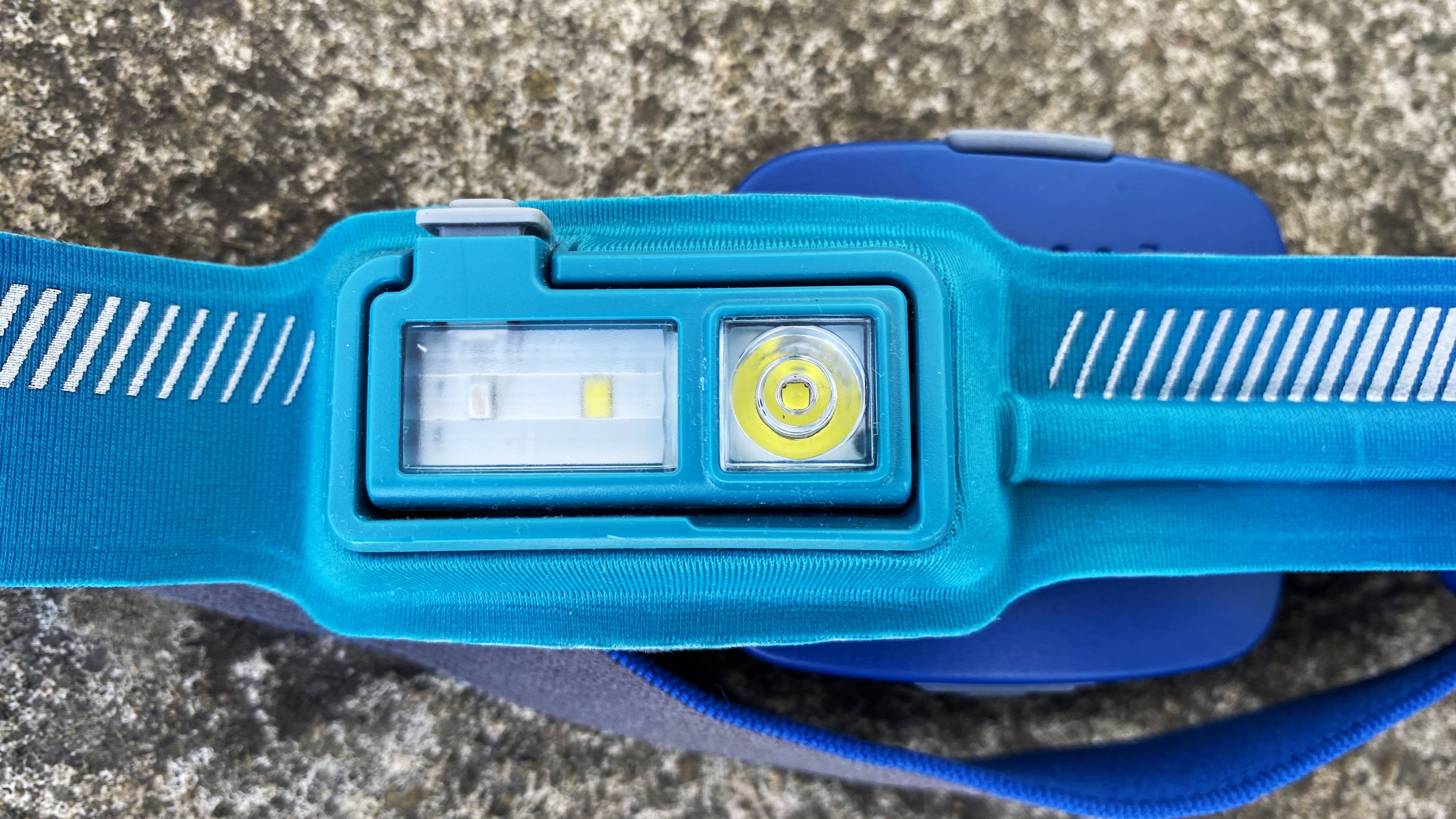
Functionality
As the name suggests, the Dash 450 has a little bit more oompf than the 425; it’s only packing 25 lumens more than its predecessor, but this gives the newer headlamp an improved range of 90 meters (295ft) on the highest setting. More importantly though, the newly redesigned lens on the Dash give the lamp higher lux – this means the lumens are more concentrated, casting a more revealing glow that enables you to spot trip hazards such as stones, roots and rocks when you’re running (or hiking) along trails.
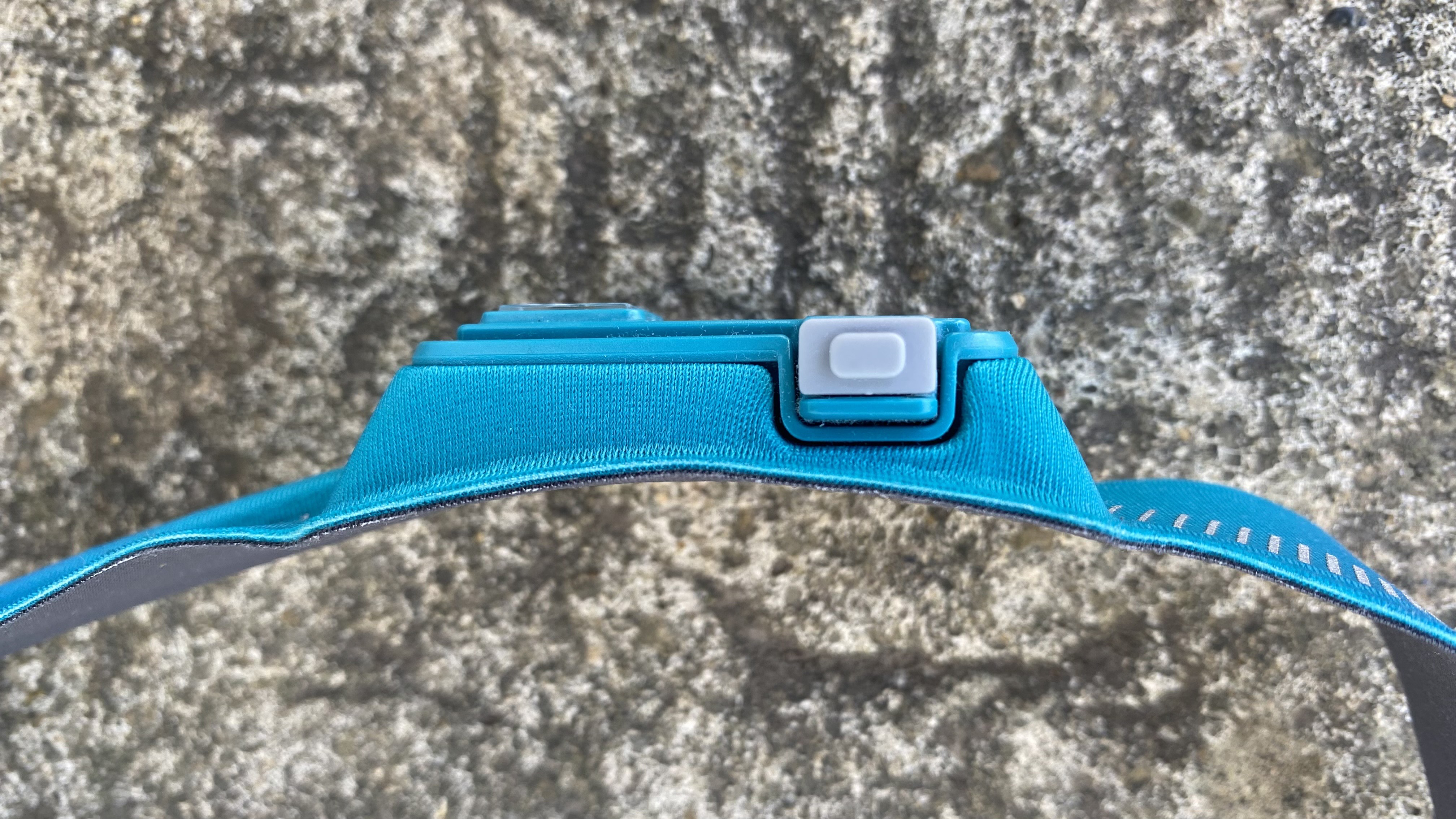
The red rear light (excellent for safety) can be set to constant or strobe. For the main front light, you can select from five modes: white spot (a 325-lumen narrow light for casting a beam a long distance), white flood (a 125-lumen widely dispersed light for illuminating your immediate surrounds), white spot plus flood combination (for both distance and proximity, and maximum range and brightness), white strobe (good for signalling) and red flood (for reading a map or finding something without completely blowing your night vision or waking everyone else in the tent/dorm up).
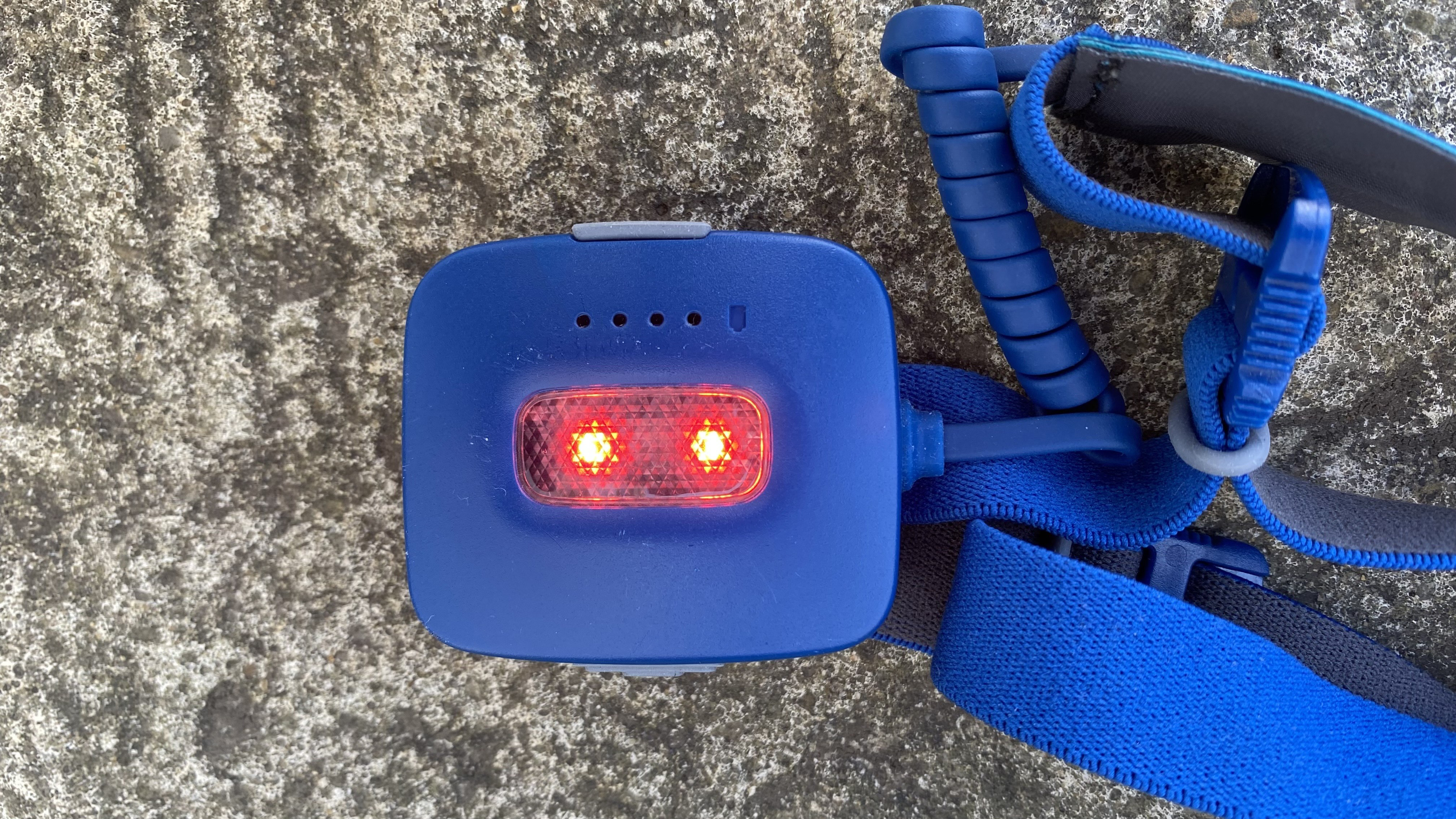
On all of these settings (except the strobe), the light can be dimmed from the max setting to preserve and improve the battery life. To change between the modes, you press the single, easy to locate button on the top of the light and toggle through the options (although, if you pause too long, the next time you press the button, the torch will turn off). Cleverly, when you turn the light back on it ‘remembers’ what mode it was set to when turned off, and even what the brightness level of the beam was.
Aside from some additional light colors (which can be useful in some circumstances – such as when viewing wildlife, when green is ideal) the only mode really missing from this headlamp is a pre-programmed S.O.S. setting.
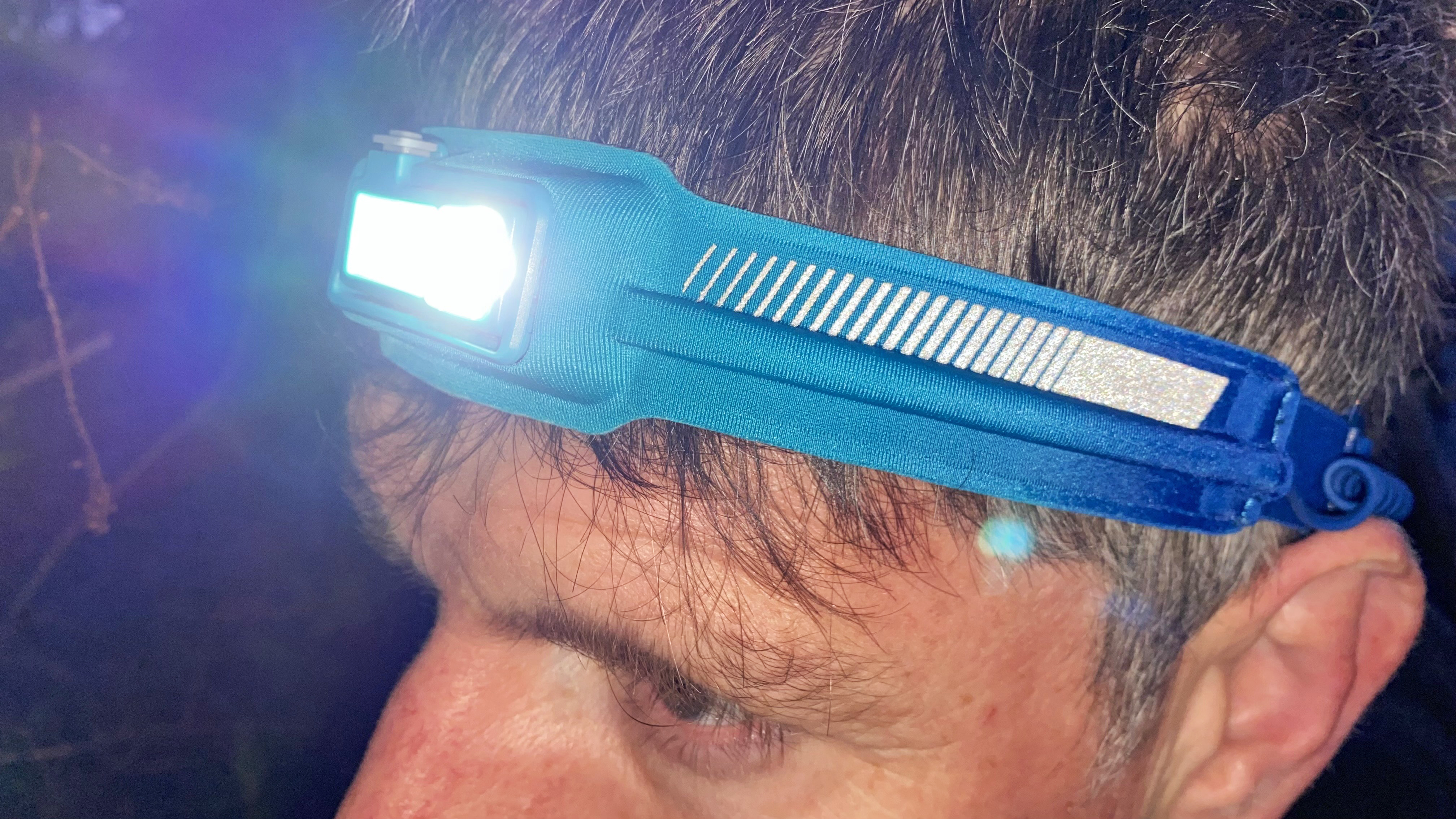
On the trails (after dark)
I have been testing the BioLite Dash 450 headlamp for the last couple of months, while night running, hiking after dark and during a couple of spring camping escapades. While it’s great in all of those scenarios, for me this is the perfect running head torch. The low-profile design of the light unit, and the way it’s housed, makes this an extremely stable headlamp that doesn’t budge, bounce, bobble or wobble even when you’re running very technical trails and jumping over obstacles, which suits me perfectly (because that’s my favorite kind of running).
While I have come across fancier headlamp harnesses, the headband on the Dash 450 (which is now available in several colors), is reasonably comfortable and breathable, and quite easy to adjust. With a few minor tweaks it’s essentially the same headband the Biolite used on the 425, which is still doing its job on the one I have here after a couple of years of consistent use, so I have no qualms about saying it’s very fit for purpose.
The band is also constructed with a moisture-wicking fabric, so when you work up a sweat while running, it effectively deals with the perspiration. Unlike the 425, the Dash 450 has some reflective flourishes on the side, to help make you as visible as possible from every angle when running on lanes and roads shared with vehicles.
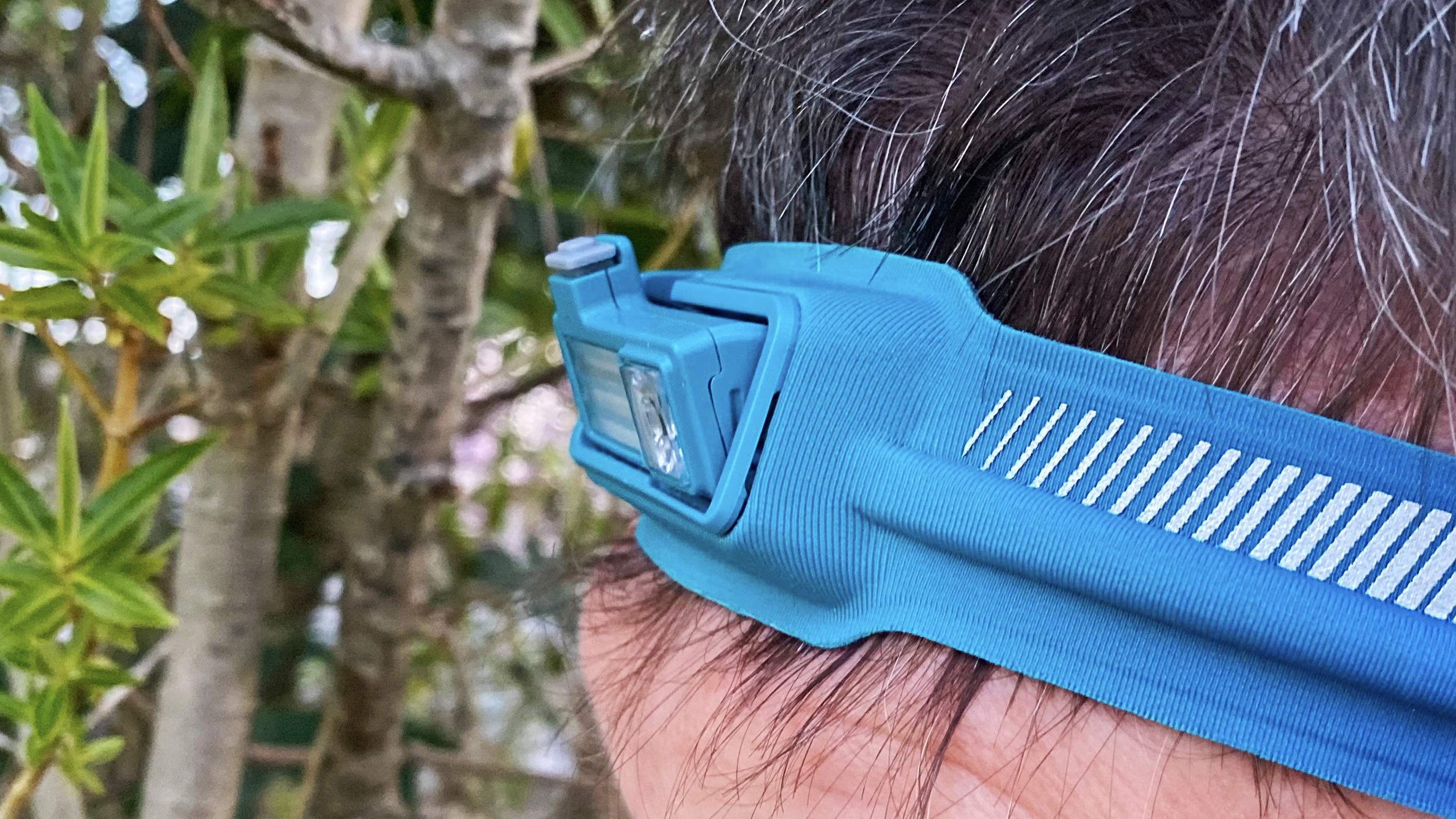
I also love the way the battery and light units are balanced evenly on the front of my head, and the tilt function works very well when you are negotiating technical trails at night.
Being so small and light, you can easily pop the Dash 450 into the pocket of a running jacket, waterproof shell or fleece jacket, or stash it in the pouch of a day pack or larger hiking pack.
The single-button operating system makes it pretty easy to toggle through the settings, even when you’re wearing running gloves. That said, I do find myself very often turning the torch off when I only meant to change the mode, or doing the complete opposite and running all the way through the settings when all I wanted to do was turn the beam off.
On a full charge, but set to flood and dimmed significantly, the battery will last up to 60 hours. At the other end of the scale, when the torch is set to high with both bulbs blazing, the battery will run out in three hours. This range gives you the ability to get through a full night of running if you’re doing an ultra marathon or big night hike.
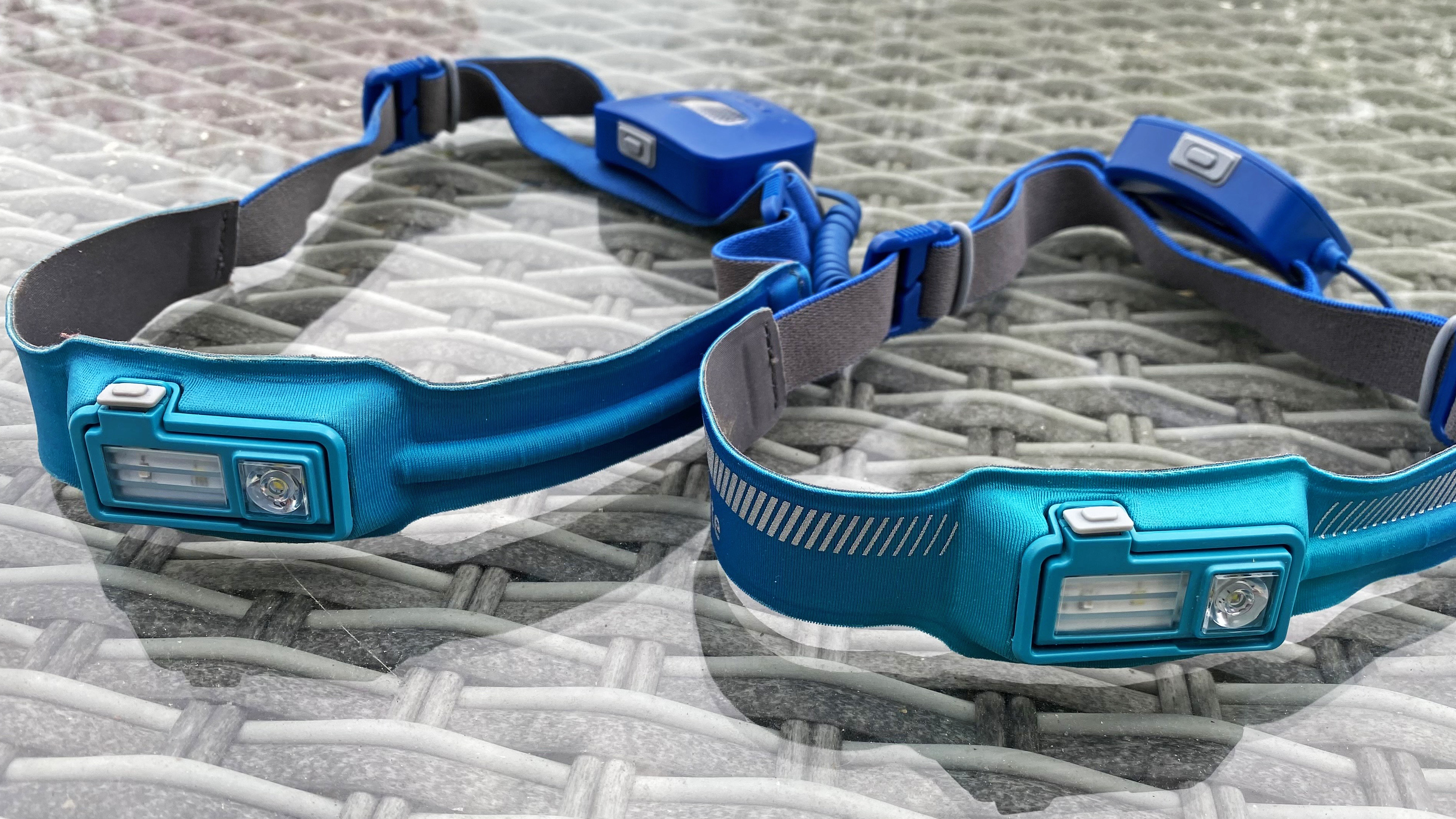
Aside from the fact that it could be a bit tougher (currently it’s not properly waterproof), my biggest criticism of the Dash 450 is that you can’t use standard batteries at all (which would be a handy back-up when doing longer expeditions and ultras – although many people carry portable powerbanks on the trail these days, so if you bring the USB cable you could top it up from one of those).
In conclusion, the Dash 450 punches well above its weight on all kinds of pre-dawn and after-dark trail escapades. Is there enough new here to justify getting one if your Biolite 425 Rechargeable Headlamp is still working perfectly well? No. The improvements are a quite small (25 extra lumens, a slightly more sophisticated lens to improve lux levels and better safety features with reflective flourishes on the side of the headband), but if you don’t already own a 425 and you’re looking for a versatile low-profile running head torch, this is an excellent choice.
Also consider
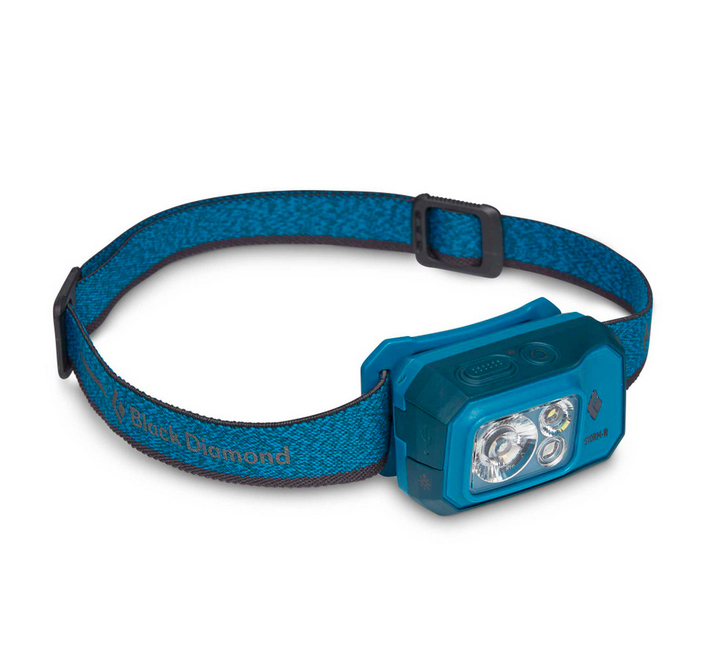
If you’re not much of an after-dark runner, and you’re looking for a headlamp that’s a true all-rounder – ideal for everything from hiking to camping to kayaking – check out the excellent Black Diamond’s Storm 500R. You can usually find it at a good price, it boasts a beam of 500 lumens and has an incredibly long burn time.
For
- Easy to adjust brightness
- Multiple light modes
- Lock mode preserves battery life
- Suitable for adventures above the snow line
Against
- Short USB cable
- No rear light for road runners
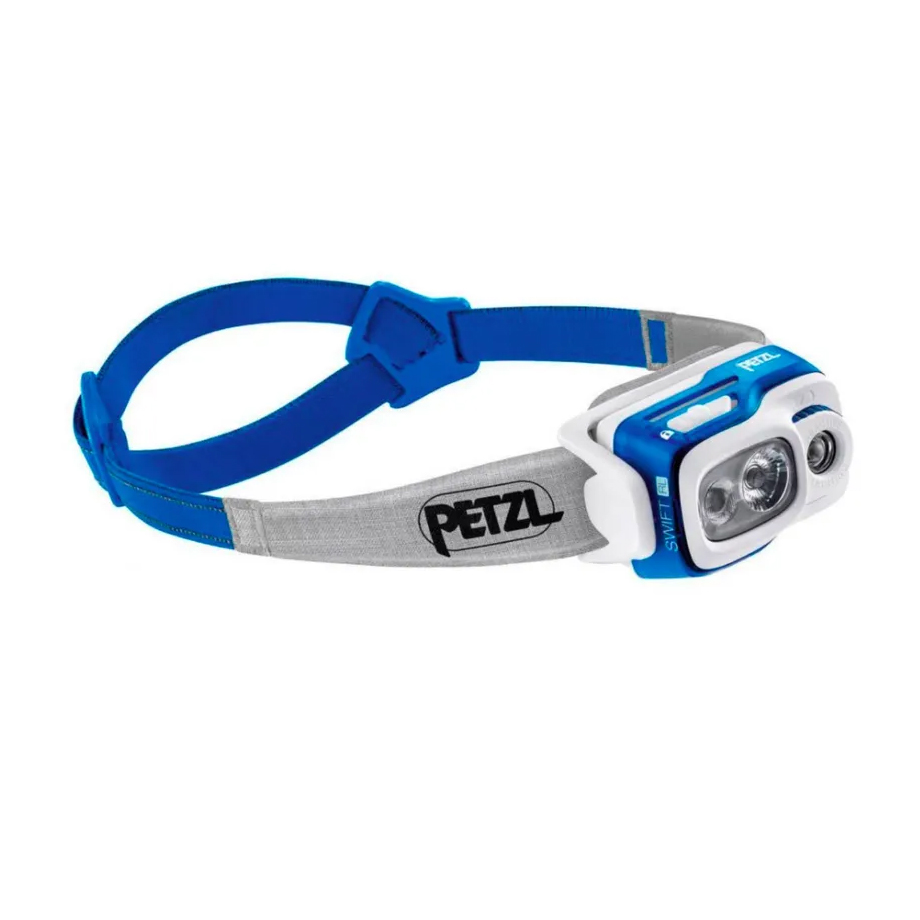
For a running headlamp that is even more powerful than the Dash, the Petzl Swift RL is an excellent choice. A little bit heavier than the BioLite headlamp, the Swift RL packs 900 lumen and can throw a beam up to 150 meters. But it is lacking a red light at the rear, and it’s chunkier on the forehead than the Dash.
For
- Light
- Long battery life
- Rechargeable battery via micro-USB
- Battery life indicator
Against
- Battery not removable
- oesn’t also take 3 x AAAs
- No red light at rear
- On/Off button could be bigger
Comparison Table
Headlamp | BioLite Dash 450 | Black Diamond Storm 500-R | Petzl Swift RL |
|---|---|---|---|
List Price | $59.95 (US) / £59.95 (UK) | $74.95 (US) / £65 (UK) | $125 (US) / £100 (UK) |
Weight | 78g / 2.75oz | 100g / 3.5oz | 102g / 3.6oz |
Lumens | 450 | 500 | 900 |
Max Burn time | 60 hours (low) / 3 hours (high) | 7 hours (High) / 350 hours (Low) | 50 hours (Low) / 2 hours (High) |
Max throw | 90m / 295ft | 120m / 390ft | 150m / 492ft |

Author of Caving, Canyoning, Coasteering…, a recently released book about all kinds of outdoor adventures around Britain, Pat has spent 20 years pursuing stories involving boots, bikes, boats, beers and bruises. En route he’s canoed Canada’s Yukon River, climbed Mont Blanc and Kilimanjaro, skied and mountain biked through the Norwegian Alps, run an ultra across the roof of Mauritius, and set short-lived records for trail-running Australia’s highest peaks and New Zealand’s Great Walks. He’s authored walking guides to Devon and Dorset, and once wrote a whole book about Toilets for Lonely Planet. Follow Pat’s escapades on Strava here and Instagram here.
